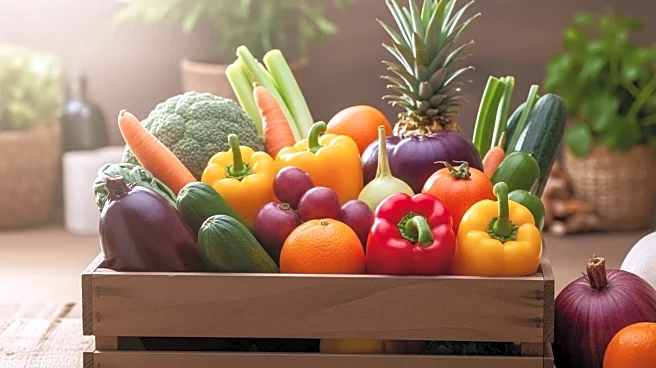What is the story about?
What's Happening?
Community Supported Agriculture (CSA) programs are being utilized by farms to stabilize revenue and provide consumers with local produce. These programs require customers to commit financially before the growing season, receiving a share of the harvest in return. Variations exist, with some farms offering multi-farm programs or credit-like structures. The programs often include a variety of produce, and some farms offer year-round memberships. CSA programs not only support local farmers but also contribute to environmental conservation by preserving farmland and reducing carbon emissions.
Why It's Important?
CSA programs are crucial for supporting local agriculture, providing farmers with a reliable income stream and consumers with fresh, locally-sourced food. They help sustain the local economy by keeping money within the community and supporting related industries. Additionally, these programs enhance food security by ensuring a steady supply of produce, which is particularly important during disruptions to national food networks. By promoting sustainable farming practices, CSA programs also contribute to environmental conservation efforts, preserving land and reducing the carbon footprint associated with long-distance food transportation.
What's Next?
As CSA programs continue to grow, they may expand to include more diverse offerings and attract a broader customer base. Increased awareness and participation could lead to more farms adopting CSA models, further strengthening local food systems. Additionally, partnerships with government programs like Maine Harvest Bucks could enhance accessibility for low-income individuals, promoting equitable access to fresh produce. The success of CSA programs may also encourage policy changes that support local agriculture and sustainable food systems.
Beyond the Headlines
The cultural impact of CSA programs extends beyond economic and environmental benefits. They foster a sense of community and connection between consumers and farmers, promoting a deeper understanding of food production and sustainability. By participating in CSA programs, consumers can develop a greater appreciation for the work involved in farming and the importance of supporting local agriculture. This cultural shift towards valuing local food systems could lead to long-term changes in consumer behavior and food policy.















